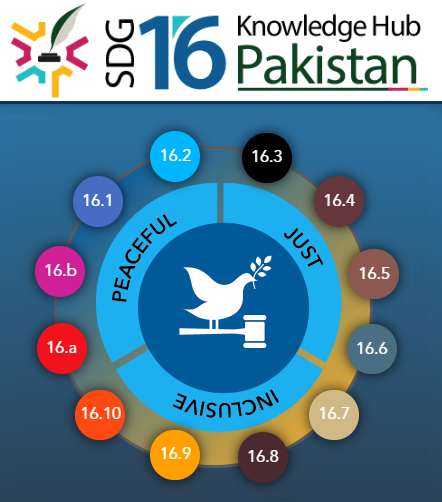

International Day for Judicial Well-being: A Global Call for Action (4 Mar, 2025)
Pakistan Ranks 129 out of 142 in the World Justice Project Rule of Law Index (26 Oct, 2024)
2024 Trafficking in Persons Report: Pakistan (24 June, 2024)
Pakistan ranks second-last in WEF Global Gender Gap Report 2024 (7 Mar, 2025)
Wrongful detention may result in punishment for police officer

Sun, February 07, 2021
PESHAWAR: The police department has issued standard operating procedures (SOPs) to ensure that arrests and detentions made by the force are in line with the relevant laws.
The guidelines for arrests and detentions, a 14-page document shared with Dawn, stated that many times cases were falsely registered or persons were illegally detained in relation to disputes of a civil nature.
The document said that protected classes such as women, children, religious minorities and persons with disabilities were detained in a manner that was inconsistent with the law and violated human rights. Sometimes arrests were made without lawful grounds or on the basis of ‘secret’ information which was inadmissible, it added.
The document said that wrongful arrests and detentions might result in punishment under sections 220, 341 to 348 and 365 of Pakistan Penal Code and section 119 of Police Act, 2017 for any police officer found guilty of misusing his powers.
It said that police officers could not detain a person without legal authority and decision to arrest a person should only be considered when there was a risk of the person reoffending, absconding and interfering in the investigation if he was not detained.
An arrest cannot not be made on mere conjectures and there must be a bona fide belief on part of police officers that an offence has or is about to be committed and the person to be arrested has been positively identified and is concerned with the offence and the arrest is necessary.
The document said that credible information did not need to be in writing rather it should be verified. It said that secret information was not sufficient for making an arrest and it also should be verified. “A mere statement by a complainant does not constitute credible information,” it added.
The SOPs also provide for properly identifying a person before arrest as an accused through identity papers. In case a person belongs to another district, the police official may write to the relevant police officials and provide the information required under the police rules for his arrest.
In case of a person appearing to be a juvenile, police officials will obtain his birth certificate, Form B, educational certificates or other identification documents that can confirm his age. If no documentary confirmation of the age of the person is available, with the consent of the accused person, a medical examination shall be requested of a medico legal officer and a medical report obtained and submitted to the court under Section 167 of CrPC.
The SOPs stated that within 24 hours of arrest, a juvenile must be provided with a legal practitioner with no less than seven years standing at the bar and appointed by the government or the juvenile court to inform the juvenile of his or her rights under law.
It said that an arrest of a female, transgendered or intersex person, whether with or without warrant, should be made by a police officer not below the rank of assistant sub-inspector.
Published in Dawn, February 4th, 2021
Copyright © 2026 pjn.org.pk








